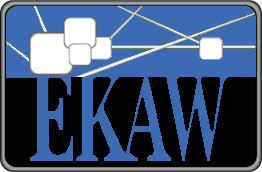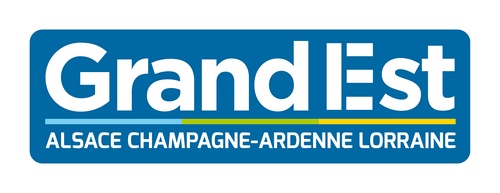Incomplete Knowledge and Collective Decision Making

Jérôme Lang
LAMSADE, CNRS – Université Paris-Dauphine, Paris France
http://www.lamsade.dauphine.fr/~lang/
Abstract
Social choice theory studies the aggregation of individual preferences towards a collective choice. Computational social choice emerged in the late 1980s, and mostly uses computational paradigms and techniques to provide a better analysis of social choice mechanisms (especially in the fields of voting and of fair division of resources), and to construct new ones. Among the subfields of artificial intelligence that are concerned by this interaction, knowledge representation plays an important role (other subfields being machine learning, reasoning with uncertainty, search, and constraint programming).
The reasons for which KR plays an important role include: representing preferences and reasoning about them; computing collective decisions with incomplete knowledge of agents’ preferences; the role of knowledge in strategic behavior; and using logic for automated theorem proving in social choice.
The talk will give an overview of part of these topics, and will try to identify challenges for KR researchers interested in computational social choice.
Bio
Jérôme Lang is a full-time researcher at CNRS (Centre National de la Recherche Scientifique) and is affiliated with LAMSADE, Université Paris-Dauphine, PSL University. His interests include computational social choice (in particular voting, fair division, coalition formation, judgment aggregation) and knowledge representation and reasoning (in particular reasoning about beliefs, knowledge and action, as well as preference representation).
He is an advisory committee member of Journal of Artificial Intelligence Research, and an associate editor of Autonomous Agents and Multi-Agent Systems and of Social Choice and Welfare. He was the program chair of ECAI-IJCAI-2018. He is a co-editor of the Handbook of Computational Social Choice (Cambridge University Press).
The Discovery of Spatial Knowledge from Images and Language

Marie-Francine Moens
Department of Computer Science, KU Leuven, Belgium
https://people.cs.kuleuven.be/~sien.moens/
Abstract
Many real-world applications of human machine interaction demand accurate understanding of human language so that the machine will correctly perform actions in the real physical world (for instance, if you give instructions to a self-driving car, you expect that the car correctly executes your commands in the physical space). Human language is known to be vague, incomplete and ambiguous. Moreover, human language uses discrete symbols which are often too abstract to correctly map to the continuous physical properties of the real world. The interpretation of language then relies on the context and prior commonsense knowledge about the world that humans have naturally acquired.
In this talk we focus on the acquisition of spatial knowledge about sizes of real-world objects and their positions in the physical space, on how the machine can learn this prior knowledge from images paired with language, on how this knowledge can help translating language to the physical properties of the real world, and finally on how it can be used by a machine to undertake action in this physical world. Our models are inspired by the way humans process language, that is, by relying on their capability to imagine situations and make inferences in imagined and real physical spaces.
Bio
Marie-Francine Moens is full professor at the Department of Computer Science of KU Leuven and head of the Informatics section of this department. She is also the director of the Language Intelligence & Information Retrieval (LIIR) lab. She holds a M.Sc. and a Ph.D. degree in Computer Science from KU Leuven.
She is author of more than 300 international peer-reviewed publications and of several books. In 2011 and 2012 she was appointed as chair of the European Chapter of the Association for Computational Linguistics (EACL). She was the scientific manager of the EU COST action iV&L Net (The European Network on Integrating Vision and Language, 2014-2018, IC1307).
She is associate editor of the IEEE Transactions on Pattern Analysis and Machine Intelligence (TPAMI) and member of the editorial board of the journal Foundations and Trends® in Information Retrieval. She was appointed as Scottish Informatics and Computer Science Alliance (SICSA) Distinguished Visiting Fellow in 2014. She is holder of the 2017 ERC (European Research Council) Advanced Grant CALCULUS which researches the topic of language understanding.
Entity-centric information access for high-end semantic applications

Simone Paolo Ponzetto
(joint work with Laura Dietz, Federico Nanni and Michael Schuhmacher)
University of Mannheim, Germany
http://dws.informatik.uni-mannheim.de/~ponzetto
Abstract
In the past years a great deal of work across different communities, ranging from Natural Language Processing (NLP) and Information Retrieval (IR) all the way through the Semantic Web (SW) and Digital Libraries (DL), has focused on entities as central tools to build semantic mo
dels of ever increasing complexity. Entity Linking, for instance, has arguably brought `classic’ sense disambiguation tasks, historically confined to the domain of computational semantic analysis, to a much larger audience, including real-world applications like semantic search, producing as a consequence full-fledged, entity-aware and entity-centric document search models.
All in all, this is good news, since these lines of research all seem to point out the benefits of text understanding for high-end applications. Even more important is the fact that work on entity-centric models prompts, perhaps even requires, lines of research from related, yet far apart research communities like NLP, IR, SW and DL to synergistically come together.
In this talk, I will elaborate on this topic of entity-centric information access and explore a variety of different high-end applications that leverage entities to make sense and bring order within large datasets of textual data. These include ranking entities for Web search queries, building event-centric corpora from Web archives, as well as using entity-aspect linking to predict relevant entities for user queries, events and tweets.
Bio
Simone Paolo Ponzetto is Professor of Information Systems at the University of Mannheim and member of the Data and Web Science Group, where he leads the Natural Language Processing and Information Retrieval group. His main research interests lie in the areas of knowledge acquisition, text understanding, and the application of natural language processing methods for research in the digital humanities and computational social sciences.
Guess What You Don’t Know: Towards an Evolutionary Epistemology of Ontology Learning

Andrea Tettamanzi
Université Nice Sophia Antipolis, France
http://www.i3s.unice.fr/~tettaman/
Abstract
One valuable contribution to our understanding of the problem of induction was made by Karl Popper, who described our never-ending quest for knowledge as an evolutionary process, whereby theories are generated through a process which lies outside Logic and are then subjected to rigorous and severe tests; only theories that manage to successfully overcome such tests survive. In a sense, this is the continuation of a natural process, namely natural selection, in which theories are embodied in organisms and organisms who follow “incorrect” theories become extinct.
In this talk I will discuss how we might draw inspiration from this insight to come up with a principled approach to ontology learning and knowledge base enrichment in the context of the semantic Web, which may be viewed as a special case of knowledge discovery from data (KDD), where the data are in the form of RDF triples and knowledge is to be described in terms of OWL axioms.
Indeed, the task of discovering axioms from a finite, albeit huge, set of known facts is a form of inductive reasoning, in that it proceeds from particular instances of concepts and relations (the RDF triples) to broader generalizations (the OWL axioms); as such, it raises epistemological problems which, as I will argue, an evolutionary approach can contribute to solve.
Bio
Andrea Tettamanzi received a PhD in Computational Mathematics and Operations Research from the University of Milan, Italy, in 1995. He was among the founders of Genetica srl, a Milan-based company specializing in soft computing consulting and applications, of which he finally sold his share in 2008. From 1998 to 2012 he was with the University of Milan. Since 2012 he is a full professor at the University Nice Sophia Antipolis and a member of the Wimmics joint project team of Inria and I3S. Since 2016, he is the head of the SPARKS research group of I3S. His main research interests are evolutionary computation, uncertainty in knowledge representation and reasoning, cognitive agent models, knowledge discovery, and the semantic Web. He has authored some 200 scholarly publications in the domain of computational and artificial intelligence.




